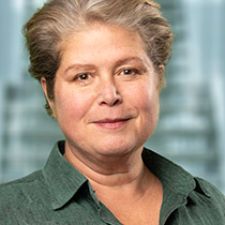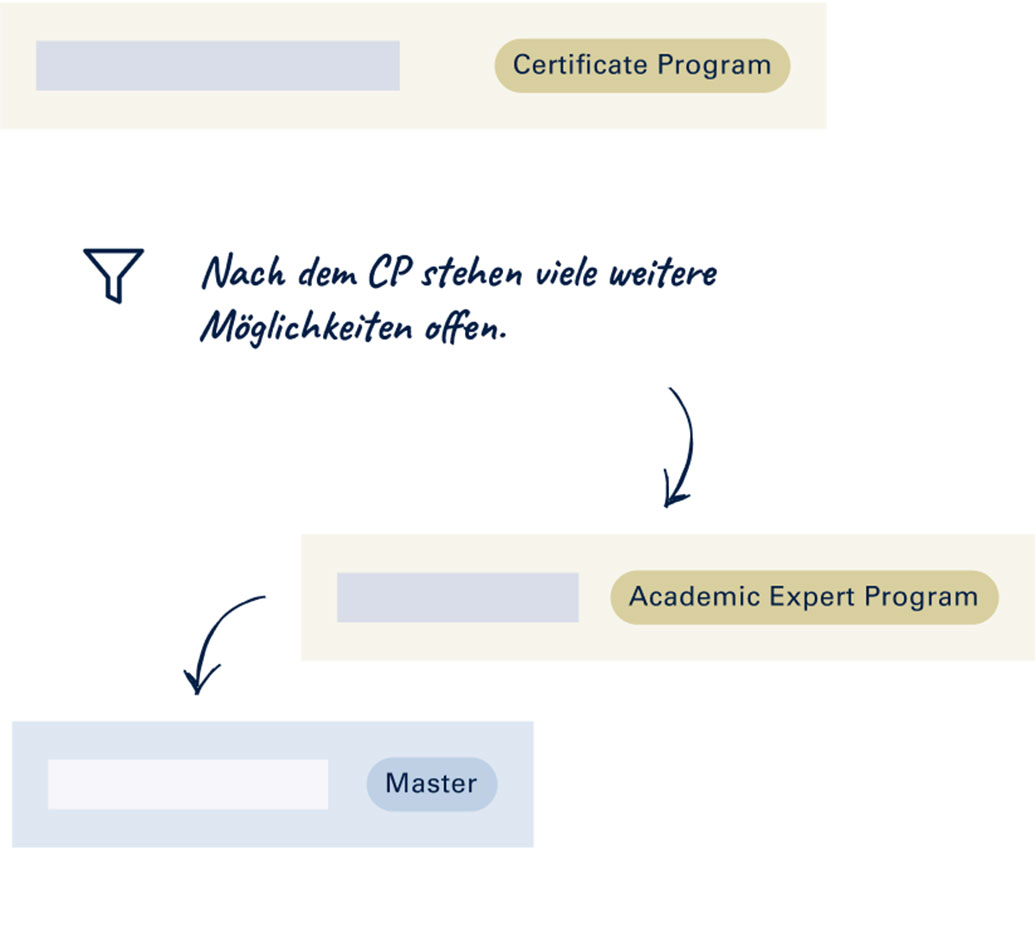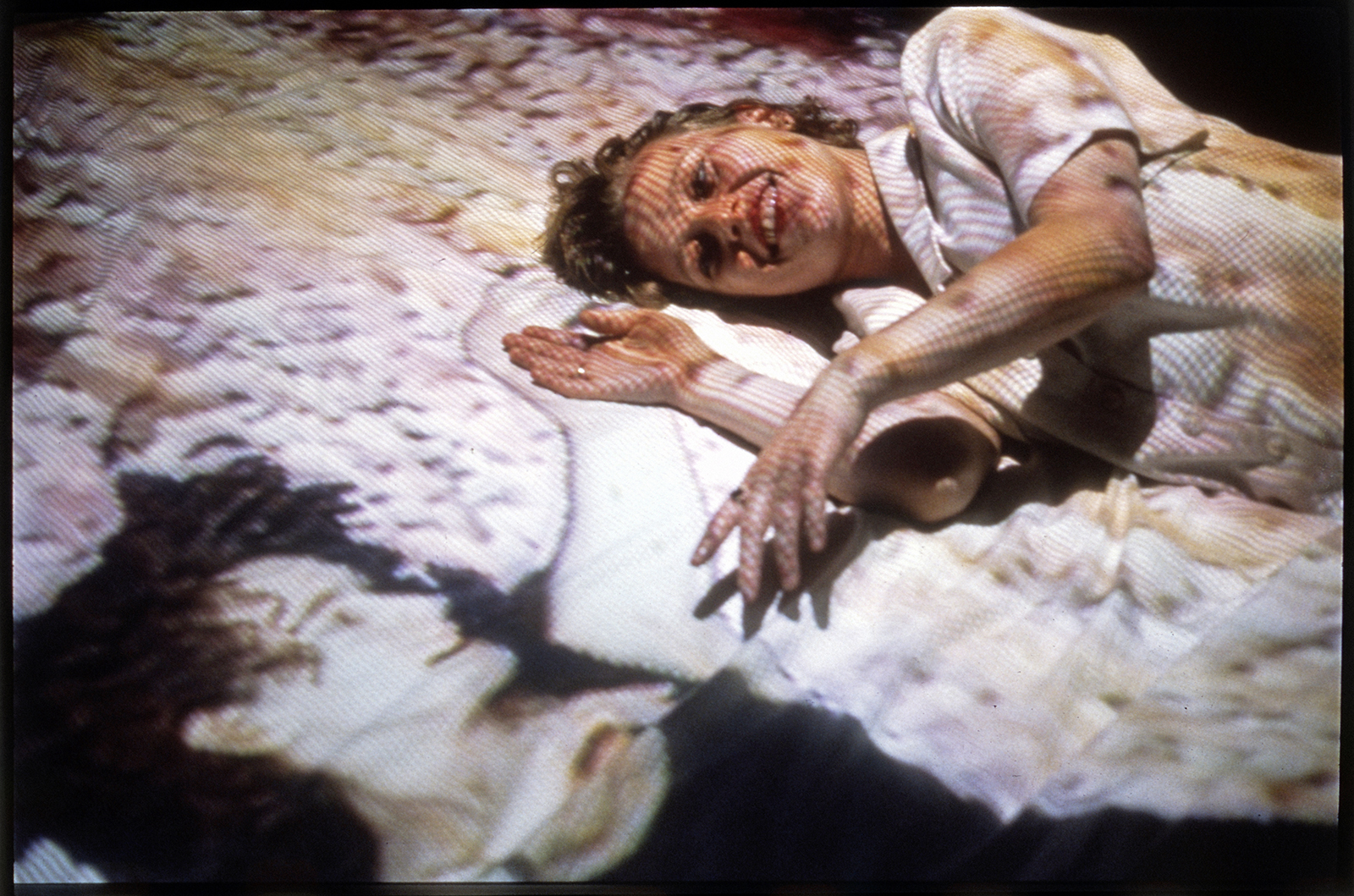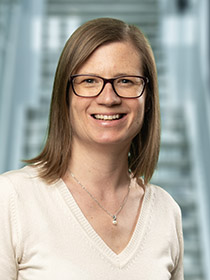-
Graduation
Certificate
-
ECTS-Points
24
-
Learning format
-
Duration
2 semesters, part time
-
Start
Winter semester 2026/27
-
Costs
EUR 3.500,--
-
Admission requirements
According to curriculum
-
Language
German or English
-
Study location
Krems (AT)
-
Curriculum
-

------------------
Traveling Exhibition Lab | Oct 23 - 24, 2026
(part of the 3 or 6 ECTS Microcredential in Praxis & Cultural Studies)

Exhibitions are developed at the confluence of innovation, where tradition and transformation flow together through the cultural sector.
Wendy Coones, M.Ed
Course Coordinator
Main Topics
Historical and theoretical foundations of exhibition development.
Mechanisms and case studies of knowledge transfer in cultural and scientific sectors.
Development, implementation, and impact of crossmedia exhibitions.
Practical approaches to storytelling and narrative crafting in exhibitions.
Digital transformation and global perspectives in exhibition practices.
Upskilling and Reskilling
Interdisciplinary orientation for curating engaging learning experiences for a wide public.
Acquisition of essential foundational knowledge for exhibition development and cross-media knowledge transfer of academic exhibition.
Realization of innovative knowledge showcases developed through well-founded theory and practical application in relevant areas.
-
practice-oriented
-
digital transformation
-
global/international perspective
Stackable Program
Stackable Programs can be combined to follow personal pathways culminating in an academic degree.

.jpg)
The Stackable Program offers me complete flexibility in the design of my studies.
Tanja Kohl
Student
Curriculum
-
Contents
This course begins with an introduction to exhibition theory, offering historical perspectives and key concepts that have shaped the field. Students will delve into the mechanisms of knowledge transfer within cultural and scientific sectors, examining how exhibitions serve as powerful mediums for disseminating information. Through detailed case studies, the course highlights successful examples of knowledge transfer via exhibitions. A significant portion of the course is dedicated to crossmedia exhibitions, exploring their development, implementation, and impact as both applied research and cultural practice. Practical applications are also covered, equipping students with the skills to design and evaluate exhibitions focused on effective knowledge transfer.
-
Contents
This course builds on theoretical foundations to explore the practical applications of knowledge transfer and storytelling. Students will analyze real-world examples of crossmedia exhibitions, gaining insights into their development as applied research and cultural practice. The course includes a comparative study of various approaches to crossmedia storytelling within the cultural and creative sectors, allowing students to understand the nuances and effectiveness of different methods. This practical focus ensures that students can see how theoretical ideas are implemented, providing valuable insights for creating engaging narratives in museum and exhibition settings.
-
Contents
This course explores the dynamic media theories and the mechanisms driving media convergence in today’s digital world. Students will be equipped with analytical tools to examine current media practices and strategies for knowledge transfer, catering to a broad range of disciplines within and beyond the exhibition sector. The course emphasizes the importance of adapting media presentations for diverse audiences, addressing the challenges and opportunities presented by our interconnected world. Through case studies and practical examples, students will gain insights into the development and implementation of effective media strategies.
-
Contents
This course offers practical insights into the application of convergent media methods within exhibition settings. Students will be guided through the unique challenges and opportunities of developing media presentations, with a focus on creating impactful knowledge transfer and experiences for scientific, artistic, and commercial displays. The course emphasizes the importance of crafting interpretative strategies that engage and educate diverse audiences. Through hands-on projects and case studies, students will learn to distinguish different types of interpretation and exhibitions, and develop applications that integrate convergent media methods effectively.
-
Contents
This course provides students with the analytical tools to assess various qualitative and quantitative audience research methods. Emphasizing application in the arts and cultural studies context, it prepares students to conduct meaningful audience studies that inform and enhance the cultural experience. Students will explore different research methodologies, learning to judge their effectiveness and applicability in various contexts. The course includes practical exercises in implementing selected visitor research methods within the exhibition context, ensuring that students gain hands-on experience in conducting audience research.
-
Contents
This course investigates methodological approaches to audience interaction tailored for contemporary cultural settings. Students are encouraged to evaluate the effectiveness and implications of various interaction methods, ranging from participative to de-central engagement. The course explores how these methods foster the creation of compelling and inclusive audience experiences. Through case studies and practical examples, students will learn to identify and compare different concepts for participation in both analog and digital spaces of collection institutions.
-
Contents
This course lays the groundwork for thriving in immersive professional projects within the arts and cultural sectors. Students will learn to design and implement praxis projects, drawing on scientific principles for their conception and development. The course emphasizes the importance of blending academic rigor with practical relevance, ensuring that students are well-prepared for real-world applications. By focusing on the ability to conceptualize and plan projects, students will be equipped to lead initiatives, manage teams, and execute projects in various professional settings, including cultural institutions, non-profits, and entrepreneurial ventures.
-
Contents
In this course, students will undertake the creation of a personal project, applying their knowledge to the Arts and Cultural Studies. The course covers project conceptualization, operational planning, and internal perspective management, fostering a comprehensive understanding of project dynamics. By developing a personal project, students will hone their organizational and creative thinking skills, which are in high demand across various industries. The course emphasizes the importance of considering individual contexts and adapting processes and sequences to specific situations in the field of art and cultural studies.
-
Contents
This course offers a structured framework for students to conduct a supervised independent study on a topic of personal interest within Arts and Cultural Studies. Emphasis is placed on methodological soundness, depth of inquiry, and clarity of outcomes, culminating in a reflective presentation. The course supports the development of skills necessary for independent research and reflection, which are beneficial for roles that require self-directed work, such as consultancy, journalism, policy development, entrepreneurship, or any area within the cultural sector where self-guided work is prevalent. Students will engage in the design, negotiation, fulfillment, and presentation of a comprehensive learning contract, ensuring a methodologically sound approach and clear result criteria.
-
Contents
Focusing on academic writing, this course challenges students to delve into the core concepts, terminology, and methodologies of Arts and Cultural Studies. It encourages in-depth research and contextual analysis, enhancing scholarly discourse and personal academic pursuits. The course covers key concepts and terminology, providing a solid foundation for individual academic exploration. Students will examine the intricate contexts of Arts and Cultural Studies, considering their scholarly, historical, institutional, and societal dimensions. This comprehensive approach ensures that students develop strong research and writing skills, which are crucial for positions involving content creation, academic publishing, education, or communication roles where articulating complex ideas is essential.
-
Contents
The internship course bridges academic theory and practical application, allowing students to gain hands-on experience in Arts and Cultural institutions. It emphasizes the translation of classroom knowledge into real-world skills, tailored to students’ career aspirations, and offers insights into various operational structures. This practical experience is invaluable, as it can lead to employment opportunities in the field of the internship or provide a competitive edge in related cultural and creative sector positions. Students will apply theoretical knowledge from crossmedia exhibition development in practice and reflect on their practical experiences, aligning them with personal career interests and the internal perspectives of Arts & Cultural institutions.
-
Contents
This collaborative lab environment offers students the invaluable opportunity to immerse themselves in an intensive active learning environment that encourages collaboration. Students work in teams to tackle practical challenges in Arts & Culture under the mentorship of experienced practitioners in dynamic environments. The course emphasizes the development of collaboration and strategy development skills, which are essential in interdisciplinary teams, community arts projects, and roles that require adaptation to diverse perspectives and societal needs. Through hands-on projects and real-world scenarios, students will learn to reflect on teamwork effectiveness and utilize the strengths of each individual member. They will also develop and evaluate strategies that enable the effective integration of Arts & Culture within various sectors, including academia, creative industries, and broader society.
Dates
Attendance blocks of the CP Crossmedia Exhibition Development
~ Each module or course can also be booked as a microcredential (MC)
Block One: October 19 - 24, 2026
Oct 19 - 22 (MC: Knowledge transfer and storytelling in the cultural and scientific sector)
Oct 20 + Online (MC: Audience Interaction)
Oct 23 (MC: Practice in Arts & Cultural Studies)
Oct 23-24 (Elective / MC: Traveling Exhibition Lab)
Block Two: January 18 - 22, 2026
January 18 - 20 (MC: Media Convergence in the Digital Age)
January 21 - 22 (MC: Qualitative & Quantitative Audience Research)
January 21 (MC: Practice in Arts and Cultural Studies - Conception & Planning)
Arts and Culture Lab (elective module)
October 23 - 24 (MC: Arts and Culture Lab with a focus on traveling exhibition development)
Stackable Microcredentials
Knowledge Transfer and Storytelling in Culture and Science (6 ECTS)
Media Convergence in the Digital Age (6 ECTS)
Audience Orientation (6 ECTS)
Praxis in Arts and Cultural Studies (6 ECTS)
Arts & Culture Traveling Exhibition LAB (3 ECTS)
The continuing education program “Crossmedia Exhibition Development” provides students with in-depth problem- and application-oriented skills and knowledge in the theoretical foundations of the discipline of visual studies by linking teaching, teaching-related research and practice. The continuing education program is interdisciplinary and offers students the opportunity to acquire compact basic knowledge in order to professionally develop exhibitions and cross-media knowledge transfer of (scientific) exhibitions and to be able to professionally implement exhibitions through scientifically sound knowledge in all relevant areas. The continuing education program imparts basic knowledge of exhibition development in connection with media theory and practice, especially with the latest strategies of audience-oriented participatory and convergent multimedia mediation.
After completing the continuing education program, students will be able to:
- recognize and apply strategies of cross-media exhibition conception and development,
- apply participatory methods with active involvement of the audience (incl. co-creation) for knowledge transfer in cultural and scientific fields,
- implement innovative and inclusive strategies for applied research as well as for art and cultural studies project practice.
Study Program Contacts

Application
Admission requirements
- general university entrance qualification or completed training at NQF level IV or
- several years of relevant professional experience (periods of training and further education can be taken into account) and
- positive completion of the selection procedure
Admission process
- Contact us to clarify your expectations of the study program and check the admission requirements
- Online application (please enter the study code UM 992 140 in the online tool).
- Carrying out the admission procedure (interview with the study program director)
- Admission to the study program
We look forward to receiving your application and to welcoming you soon at the University for Continuing Education Krems.
Stackable degrees
Tags

